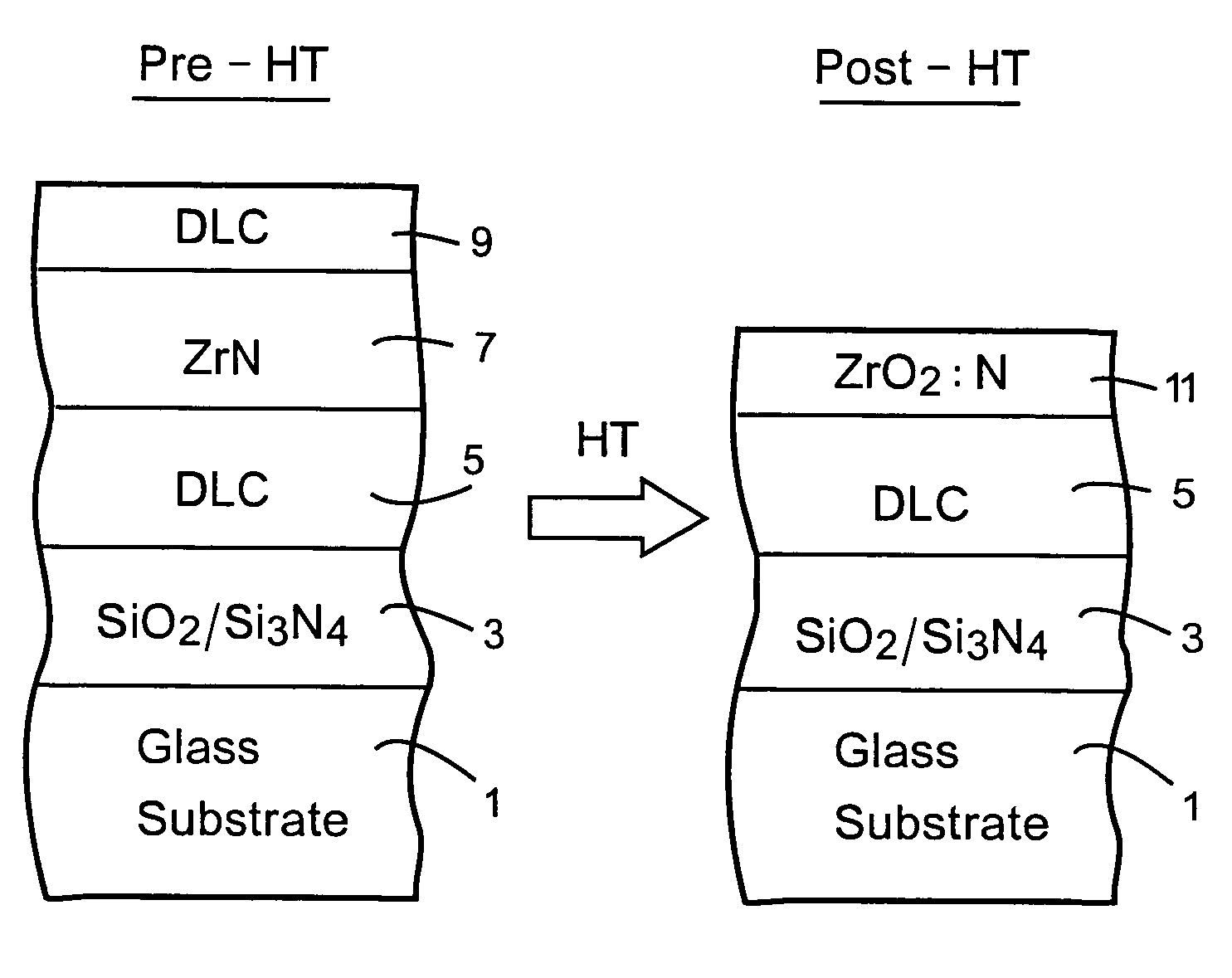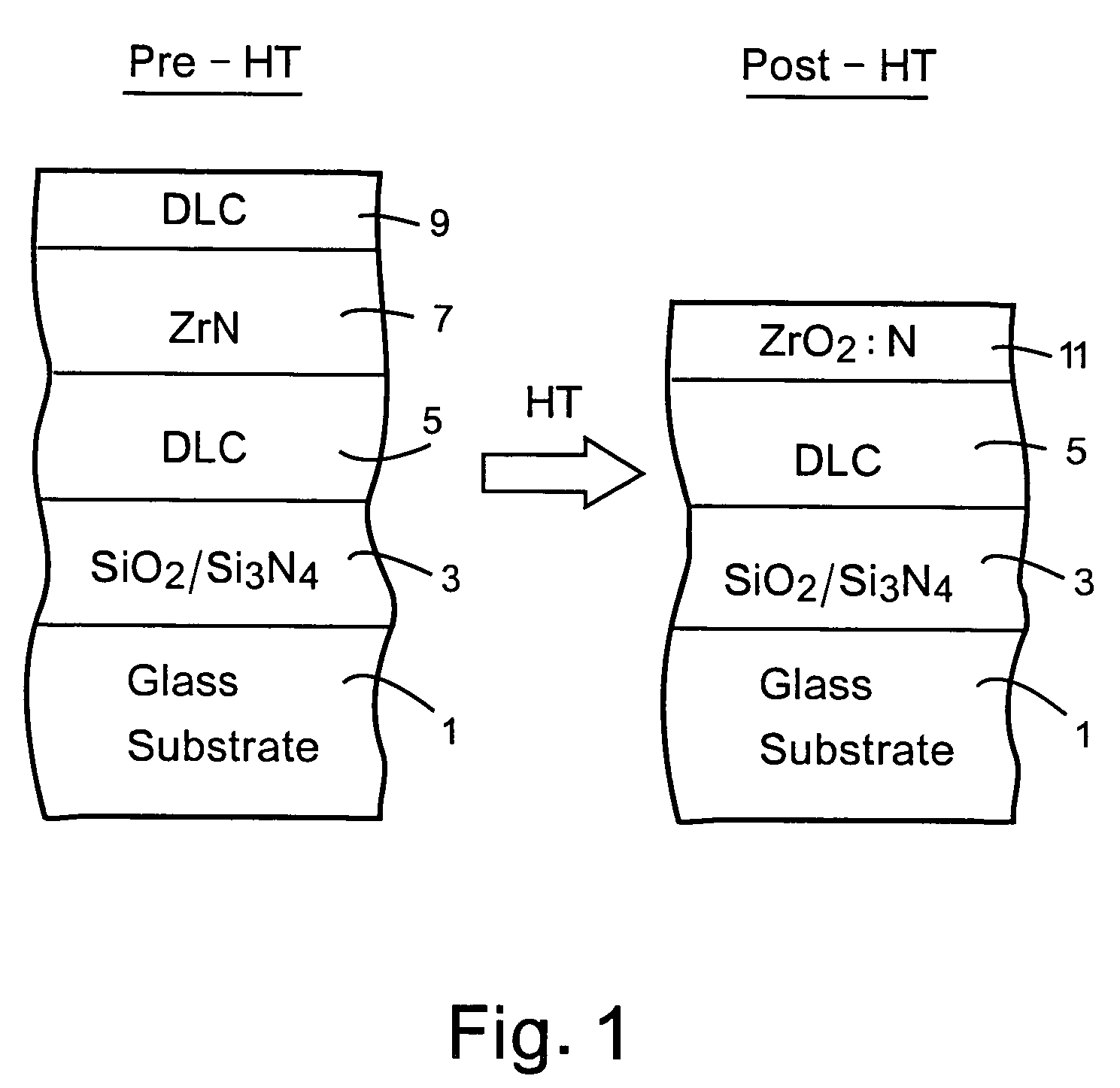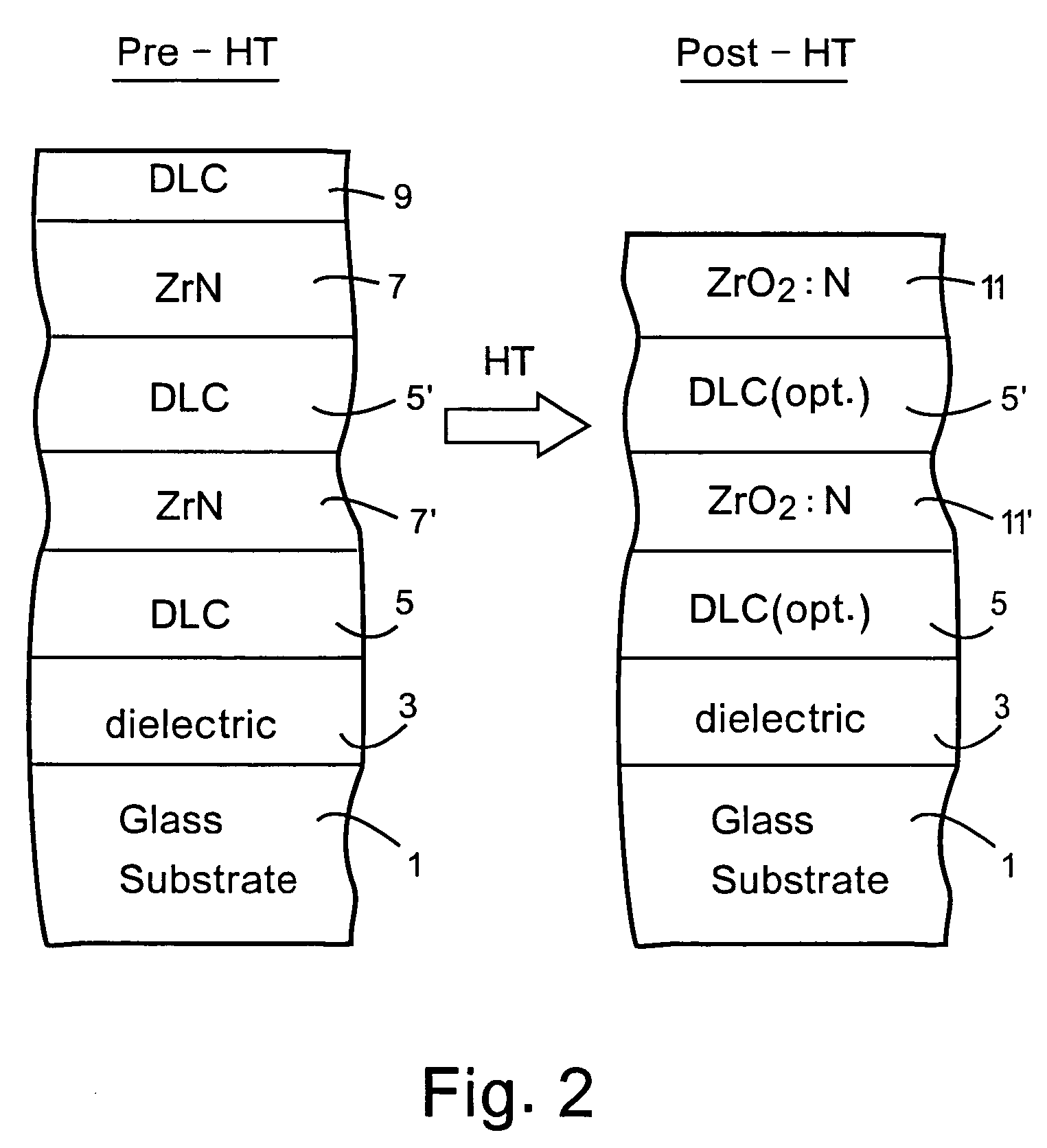Heat treatable coated article with diamond-like carbon (DLC) and/or zirconium in coating
a coating and diamond-like technology, applied in coatings, chemistry apparatuses and processes, transportation and packaging, etc., can solve the problems of dlc as a protective overcoat not being able to withstand heat treatment (ht), dlc cannot be used alone as a coating to be heat treated, and dlc tends to oxidize and burn o
- Summary
- Abstract
- Description
- Claims
- Application Information
AI Technical Summary
Benefits of technology
Problems solved by technology
Method used
Image
Examples
example 1
[0073]For purposes of example, and without limitation, the following example coated article was made and tested according to an example embodiment of this invention. This Example 1 is similar to the FIG. 5 embodiment.
[0074]The glass substrate 1 was cleaned / washed. It was then ion beam etched using argon gas to clean the surface thereof. Then, a silicon nitride barrier layer 3 (doped with Al) about 100 Å thick, a DLC (ta-C:H type) layer 5 about 70 Å thick, a zirconium nitride layer 7′ about 100 Å thick, another DLC (ta-C:H type) layer 5′ about 70 Å thick, another zirconium nitride layer 7 about 100 Å thick, and a sacrificial outer DLC (ta-C:H type) layer 9 about 70 Å thick were formed on a glass substrate (see FIG. 5). The ZrN layers 7 and 7′ were formed via sputtering a Zr target in an atmosphere including N and Ar, and the DLC layers were formed via ion-beam deposition using an anode-cathode voltage of about 3,000 V and acetylene feedstock gas.
[0075]FIG. 3 is an XPS graph illustrat...
example 2
[0078]Example 2 was made in accordance with the FIG. 6 embodiment. On a 10 mm thick clear glass substrate having a composition similar to that discussed above, layers 5, 7 and 9 were formed as shown in FIG. 6. DLC layer 5 was 34 Å thick, ZrN layer 7 was 160 Å thick, and DLC layer 9 was 100 Å thick. The two DLC layers were formed via ion beam deposition using acetylene gas, while the zirconium nitride layer 7 was formed via sputtering using a power of about 3 kW. Following heat treatment, the coated article included substrate 1 and zirconium oxide layer 11 that included some nitrogen as shown on the right side of FIG. 6.
[0079]Following HT, based on three different samples of this example, the coated article of this example on average had a visible transmission of about 78.61%, a critical scratch load (CSL) of 31 lbs. and a haze value of 1.6.
example 3
[0080]Example 3 was made in accordance with the FIG. 7 embodiment. On a 10 mm thick clear glass substrate 1 having a composition similar to that discussed above, layers 7 and 9 were formed as shown in FIG. 7. ZrN layer 7 was 160 Å thick, and DLC layer 9 was from 60-100 Å thick. As with other examples, the zirconium nitride layer was formed by sputtering. Following heat treatment, the coated article included substrate 1 and zirconium oxide layer 11 that included some nitrogen as shown on the right side of FIG. 7.
[0081]Following HT, based on three different samples of this example, the coated article of this example on average had a visible transmission of about 81.35%, a critical scratch load (CSL) of 10.8 lbs. and a haze value of 0.44.
[0082]In certain example non-limiting embodiments of this invention, coated articles following HT may have a visible transmission of at least 70%, more preferably of at least 75%. In certain example non-limiting embodiments of this invention, coated ar...
PUM
| Property | Measurement | Unit |
|---|---|---|
| thick | aaaaa | aaaaa |
| contact angle | aaaaa | aaaaa |
| contact angle | aaaaa | aaaaa |
Abstract
Description
Claims
Application Information
 Login to View More
Login to View More - R&D
- Intellectual Property
- Life Sciences
- Materials
- Tech Scout
- Unparalleled Data Quality
- Higher Quality Content
- 60% Fewer Hallucinations
Browse by: Latest US Patents, China's latest patents, Technical Efficacy Thesaurus, Application Domain, Technology Topic, Popular Technical Reports.
© 2025 PatSnap. All rights reserved.Legal|Privacy policy|Modern Slavery Act Transparency Statement|Sitemap|About US| Contact US: help@patsnap.com



